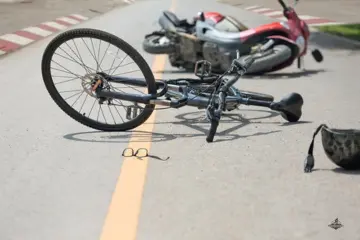
Riding a bike after a few drinks might seem safer than driving a car, but the question “Can you get a DUI on a bike?” often surprises people. The truth depends on where you live. In some states, bicycles count as vehicles under DUI laws. While others have separate rules or no restrictions at all.
This guide breaks down drunk biking laws in the United States, including state variations, penalties, and safety tips. If you’re wondering about biking under the influence (BUI) or curious about how blood alcohol concentration (BAC) limits apply to cyclists, you’ll find clear answers here.
What Is Drunk Biking and How Do DUI Laws Apply?
Drunk biking (or cycling under the influence) means riding a bicycle while impaired by alcohol or drugs.
- In many states, DUI statutes use the word “vehicle.” If bicycles fall under that definition, you can be charged.
- Other states exempt bikes from motor vehicle laws, but still cite riders for public intoxication, reckless operation, or endangering traffic.
- E-bikes and motorized bicycles often face stricter rules since they’re treated more like cars or motorcycles.
The key factor: Does your state consider a bicycle a “vehicle” under its DUI law?
States Where You Can Get a DUI on a Bike
In about half of U.S. states, a bike DUI is possible. These states either include bicycles in DUI statutes or have specific laws for biking under the influence.
Here are some key examples:
- Florida – Treated the same as a car DUI; can lead to license suspension.
- Georgia – Bikes are vehicles; penalties include fines up to $1,000 and possible jail.
- Oregon – Includes bikes; penalties may impact your driver’s license.
- Ohio, Texas, Colorado, and Pennsylvania – DUIs apply to bicycles with BAC limits at 0.08% for adults.
States where you can get a DUI on a bike include: Alabama, Colorado, Connecticut, District of Columbia, Florida, Georgia, Hawaii, Idaho, Indiana, Iowa, Maryland, Mississippi, New Hampshire, North Carolina, North Dakota, Ohio, Oregon, Pennsylvania, Rhode Island, South Dakota, Texas, and Wyoming.
States Where You Can’t Get a DUI on a Bike (But Other Charges Apply)
In other states, bicycles aren’t considered motor vehicles, so DUI laws don’t apply. But that doesn’t mean you’re off the hook. Police can still stop you for reckless riding, public intoxication, or creating a hazard.
Examples:
- California – No DUI for bikes, but a separate Cycling Under the Influence law (VC 21200.5) carries a $250 fine.
- Washington – Police can stop drunk cyclists and even impound the bike for safety, but no DUI charge applies.
- Illinois – No DUI unless it’s a motorized bicycle over 20 mph.
- Virginia, Wisconsin, New York – No DUI, but public safety laws still apply.
States where you can’t get a DUI on a bike include: Alaska, Arizona, Arkansas, California (separate BUI law), Delaware, Illinois, Kansas, Kentucky, Louisiana, Maine, Massachusetts, Michigan, Minnesota, Missouri, Montana, Nebraska, Nevada, New Jersey, New Mexico, New York, Oklahoma, South Carolina, Tennessee, Utah (limited), Vermont, Virginia, Washington, West Virginia, and Wisconsin.
Penalties for Cycling Under the Influence
The penalties for biking drunk depend on your state:
- Georgia & Florida – Fines of $300–$1,000, community service, and possible jail time.
- Oregon & Pennsylvania – May include driver’s license consequences.
- California – Just a $250 fine, no jail or license suspension.
- Iowa – Classified as an OWI (Operating While Intoxicated), similar to a car DUI.
Even when penalties are lighter, a conviction can still show up on your record, impact jobs, or affect insurance.
How Drunk Biking Differs from a Standard DUI
- Car DUIs: Almost always trigger license suspension, possible jail, and ignition interlock devices.
- Bike DUIs: Often lighter fines and fewer long-term consequences, unless you caused an accident.
- Testing: Police may still use field sobriety tests, breathalyzers, or BAC blood tests on cyclists.
- E-bikes: Often treated like motor vehicles → full DUI charges apply.
Tips to Avoid Biking Under the Influence Trouble
If you’ve been drinking, the safest move is not to ride. Even if your state doesn’t have a strict BUI law, impaired biking is risky.
- Use rideshares, public transit, or walk.
- Know your state’s cycling DUI laws.
- If cycling, always wear a helmet, use lights at night, and ride predictably.
- If cited, stay calm and consult a DUI lawyer for advice.
Final Thoughts on Biking Under the Influence
So, can you get a DUI on a bike? It depends on your state. In some places, cycling after a few drinks is treated just like driving a car. In others, it falls under lighter penalties, or different laws like BUI.
Even if your state doesn’t apply DUI laws to bicycles, drunk biking still puts you at risk of accidents, injuries, or other charges. The bottom line? It’s always safer to avoid riding impaired.
If you’re dealing with a charge, speak with a DUI attorney for legal advice. And if you’re heading out for drinks, plan a safe ride home, your safety and freedom are worth it.
Frequently Asked Questions About Bike DUIs
Yes. Police can charge you with public intoxication or reckless riding.
In some states, like Florida, yes. In California or Utah, no.
Usually, the same as cars: 0.08% for adults, lower for minors.
Often yes, since e-bikes are considered motorized vehicles in many states.

Co-Founder, Owner, and CEO of RoadHybridBike.
Ehatasamul Alom is a dedicated road hybrid bikes expert. With over 15 years of experience, he helps people find the perfect ride. He began his journey as a bike mechanic. He learned the ins and outs of every bike.
Ehatasamul Alom holds a Master’s degree in Mechanical Engineering from a top university, where he specialized in material science and bicycle kinematics. His master’s thesis focused on optimizing frame geometry for road hybrid bikes to improve rider comfort and efficiency.
Ehatasamul has an extensive professional background. He spent 10 years as a Senior Bike Designer at “Urban Cycles,” a leading bicycle manufacturer. In this role, he led the development of several award-winning road hybrid bikes, which are known for their durability and performance. He later served as the Head of Product Development at “Gear Up,” a company specializing in high-end cycling components. There, he developed innovative parts and accessories specifically for road hybrid bikes.
Over the years, Ehatasamul has become an authority on road hybrid bikes. He understands their design and function. His work focuses on making bikes easy to use. Ehatasamul believes everyone should enjoy cycling. He writes guides that are simple to read. His passion for road hybrid bikes is clear. His goal is to share his knowledge with everyone. He wants to see more people on two wheels. His advice is always practical and easy to follow.

Leave a Reply
You must be logged in to post a comment.